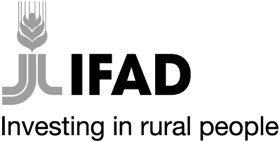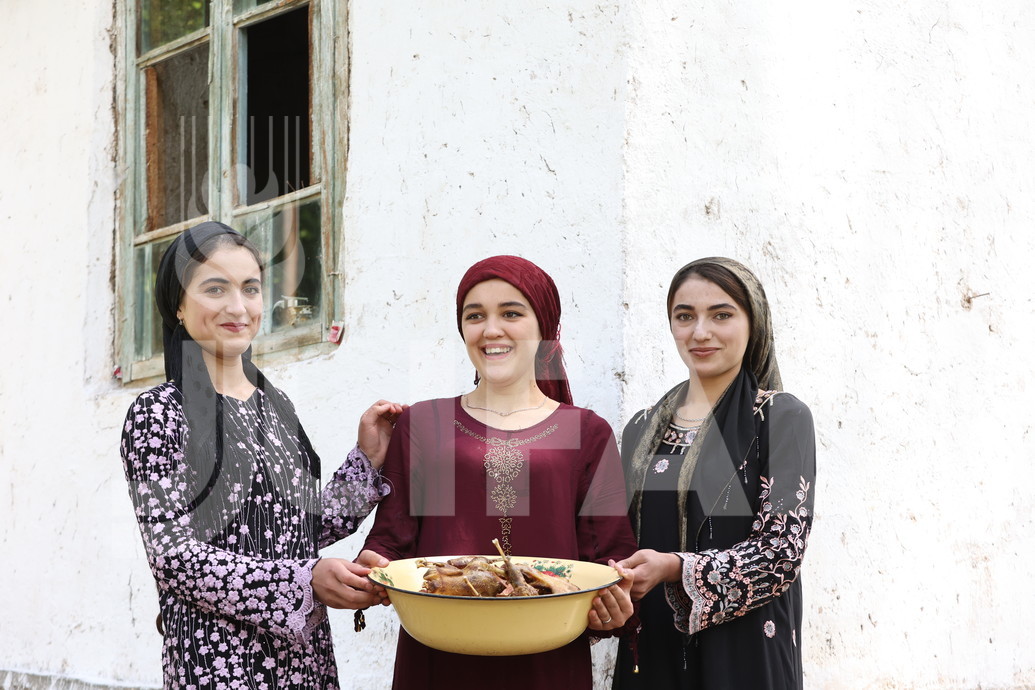| ID: | 76645 |
|---|---|
| Country: | Tajikistan |
| Title: | Tajikistan - Community-based Agricultural Support Project (CASP) - May 2022 |
| Description: |
Dilangez Sidikzoda, Oisha Haitova and Lutfiniso Sadikova, all 18-years-old, show off a nice roasted turkey raised by their Nimich Village women’s income-generating group for poultry production. Traditionally, rural women in Tajikistan have limited access to economic opportunities and decision-making. The CASP is ensuring that women have a voice in their village organizations. Based on priorities defined by its women members, the Village Organization established income-generating groups for them to engage in diversified activities, such as poultry production and food processing. Not only does this help the women increase their household income, it also promotes better nutrition and ensures food security for their families. The mountains and foothills that surround Nimich Village provide the perfect conditions for turkey production. Based on a priority included in the Village Organization’s community action plan, the CASP helped organize a Women’s Income Generating Group (WIGG) on turkey breeding for ten women, giving the group two incubators and eight turkeys to each woman. While the women had always had free range poultry, they learned from the project how to properly care for them and, for the first time, how to benefit from them commercially. “Chickens are easy to raise – they take care of themselves. But turkeys are very difficult. They need a lot of attention until they are at least three months old. Also, unlike chickens, turkeys require a lot of space.” The improved breed turkeys they received from the project grow much bigger and produce more meat than their local breed. In 2021, the women used the two incubators provided by the project to hatch 125 turkey and 790 chicken eggs. They used turkey hens to hatch another 235 chicken eggs. During the winter season, sporadic electricity makes it impossible to use the incubators. The women select only the largest eggs for incubating, up to 190 eggs at a time, saving the smaller eggs to eat. The eggs are marked or color coded to indicate to which woman the eggs belong. Turkey eggs take about ten days longer to incubate than chicken eggs, so they time their placement in the incubator precisely. If they can’t collect enough eggs to place them in the incubator within one week, they can use the eggs for eating instead. Out of each batch, two or three eggs won’t hatch. The women keep very careful production records to track the number of eggs hatched, the dates hatched and to whom the chicks belong. Once hatched, each woman cares for her own chicks and decides when and where to sell. In order to involve other village women in the activity, the group gave five turkey chicks to each of 16 of their low-income neighbors, and have plans to expand the group even further. The Community-based Agricultural Support Project (CASP) is building on the significant achievements of the earlier Livestock and Pasture Development Project to stimulate inclusive economic growth and poverty reduction in rural Tajikistan. Since 2018, the CASP has provided benefits to more than 51,000 households in 177 rural villages in Khatlon Oblast, Soghd and Republican Subordination Regions. Its activities are helping communities and smallholder (dehkan) farmers access productive infrastructure and services, leading to sustainable agricultural production, equitable income-generating opportunities and improved living standards. The CASP works with Village Organizations (VOs) to develop community-driven action plans that define their own improvement initiatives. Village-level participation in decision making is critical to the success of these plans and helps establish a sense of community ownership and cohesion. |
| Size: | 5.69 MB; 5472 x 3648 pixels; 463 x 309 mm (print at 300 DPI); 1448 x 965 mm (screen at 96 DPI); |
| Show more details: | Didor Sadulloev |
| Copyright: | © IFAD/ Didor Sadulloev |
| Categories: | none |
| URL: | www.ifad.org |

